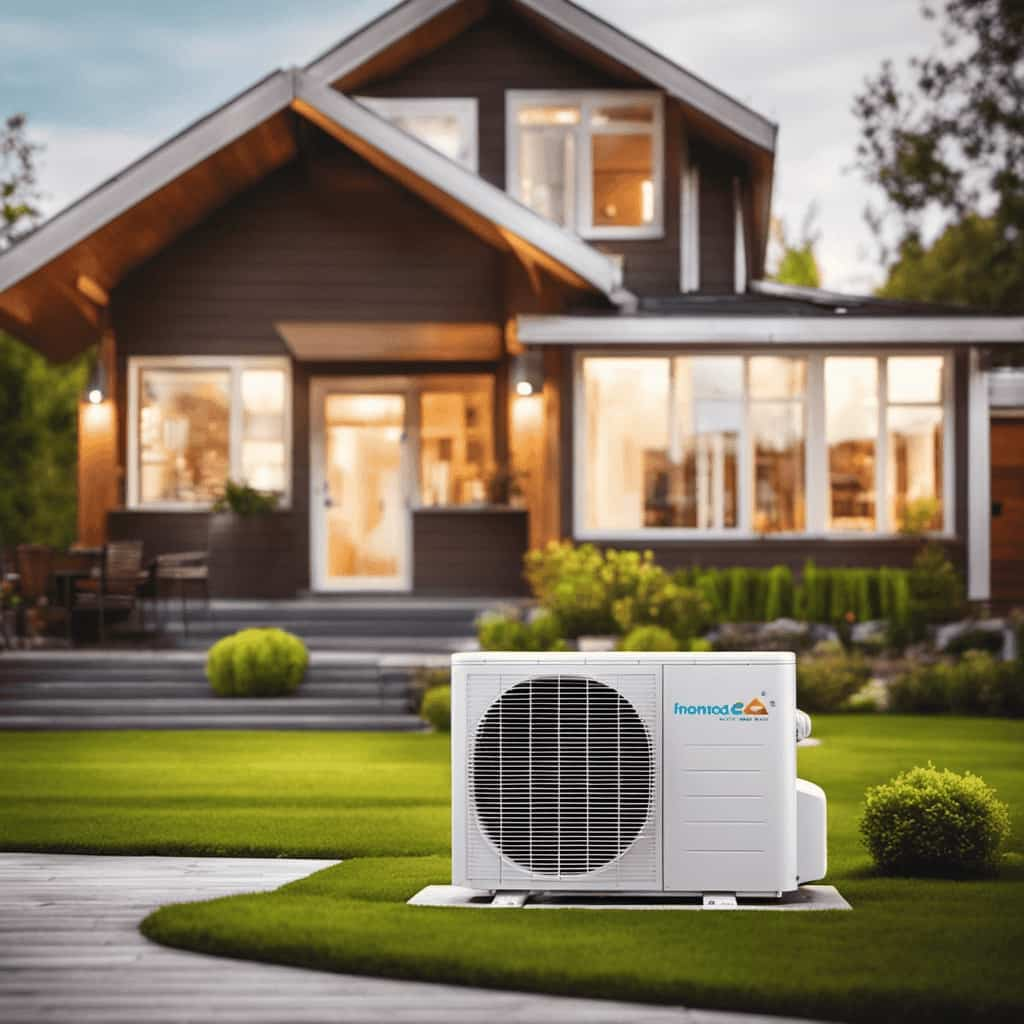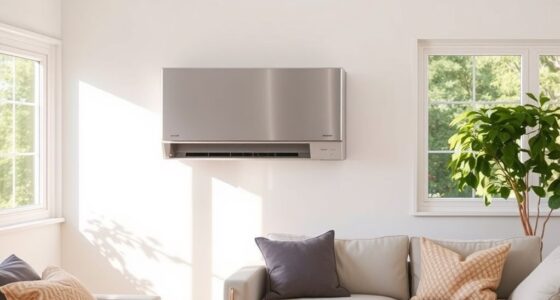Tired of being uncomfortably warm or chilly in your house? We’ve got you covered. Learn how to attain optimal climate comfort with our vital guidelines for enhancing the efficiency of your heat pump.
By understanding efficiency ratings, properly sizing your system, and performing regular maintenance, you can ensure optimal performance and longevity.
With programmable thermostats, smart energy management strategies, and rebates and incentives, you can save money while staying comfortable.
Let’s explore these climate control tips together and create the ideal home environment for you.

Key Takeaways
- Proper sizing and regular maintenance are crucial for maximizing heat pump efficiency.
- Energy management strategies, such as programmable thermostats and smart energy practices, can help save money and contribute to a sustainable environment.
- Regularly cleaning or replacing air filters and addressing refrigerant leaks can extend the lifespan of a heat pump.
- Effective insulation techniques and optimizing airflow and ventilation are essential for efficient heat pump operation.
Understanding Heat Pump Efficiency Ratings
Let’s delve into the topic of understanding heat pump efficiency ratings to maximize the efficiency of our climate control system.
Heat pump performance is measured by its efficiency ratings, which provide valuable information about its energy consumption. These ratings are expressed in terms of Seasonal Energy Efficiency Ratio (SEER) and Heating Seasonal Performance Factor (HSPF).
SEER indicates the cooling efficiency, while HSPF measures the heating efficiency. Higher SEER and HSPF ratings indicate better energy efficiency, resulting in lower energy consumption and reduced utility costs.
When selecting a heat pump, it’s important to consider these ratings to ensure optimal performance and cost savings. By choosing a heat pump with higher efficiency ratings, we can effectively manage our energy consumption and contribute to a more sustainable and environmentally friendly climate control system.

Proper Sizing for Optimal Performance
When it comes to heat pump efficiency, proper sizing is of utmost importance. A heat pump that’s too small will struggle to meet the heating or cooling demands of a space, leading to reduced performance and higher energy consumption.
On the other hand, a heat pump that’s too large will cycle on and off frequently, causing unnecessary wear and tear on the system and potentially leading to higher operating costs.
Therefore, understanding the impact of sizing on performance is crucial for maximizing heat pump efficiency.
Importance of Correct Sizing
Correctly sizing your heat pump is crucial for achieving optimal performance and should be done regularly.
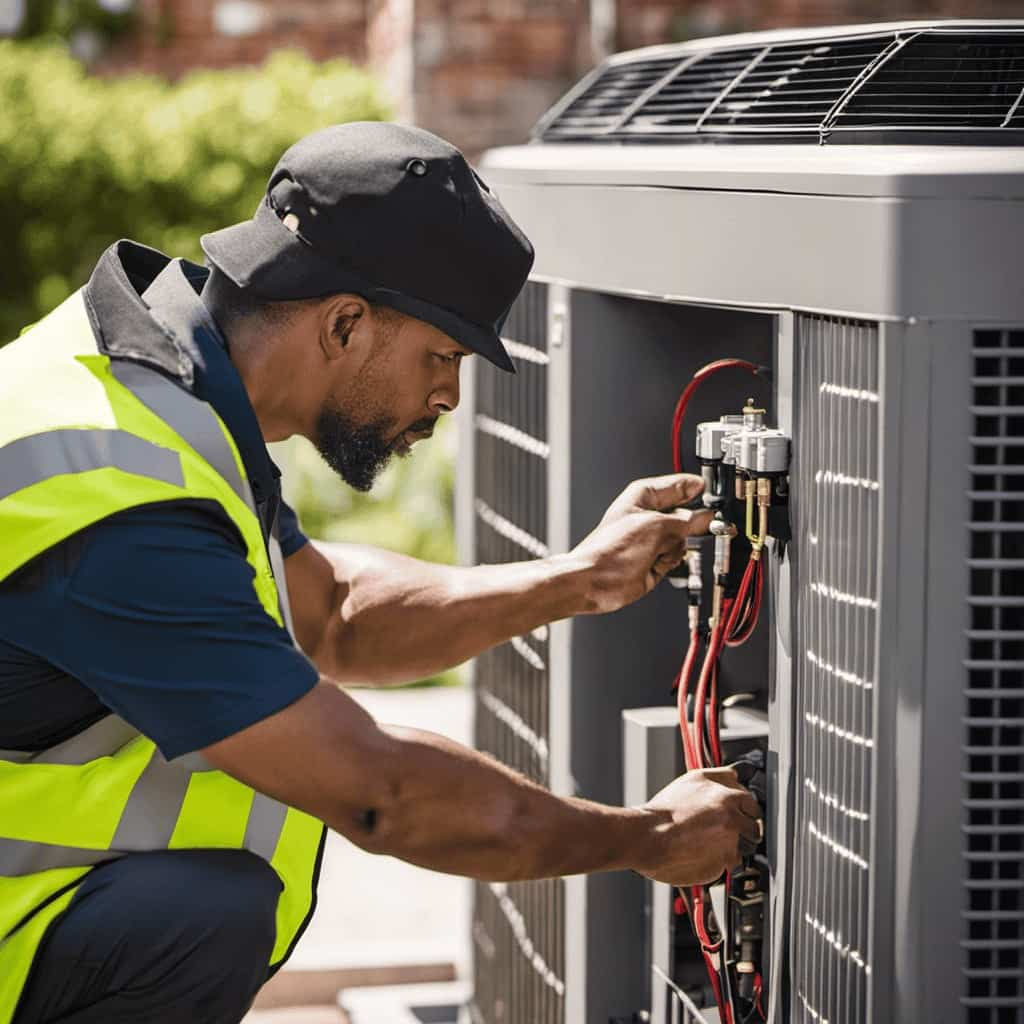
The correct heat pump size is determined by performing accurate sizing calculations based on various factors such as the climate, insulation levels, and the size and layout of the space to be heated or cooled.
Oversized or undersized heat pumps can lead to inefficient operation, increased energy consumption, and reduced comfort levels. An oversized heat pump will cycle on and off frequently, resulting in temperature fluctuations and increased wear and tear on the system. On the other hand, an undersized heat pump will struggle to meet the heating or cooling demands, leading to longer run times and higher energy bills.
Regularly assessing and adjusting the correct heat pump size is essential for ensuring optimal performance, energy efficiency, and customer satisfaction.
Performance Impact of Sizing
Assessing and adjusting the correct heat pump size is vital for maximizing performance and achieving optimal efficiency. When it comes to the impact on performance, improper sizing can lead to a range of issues.
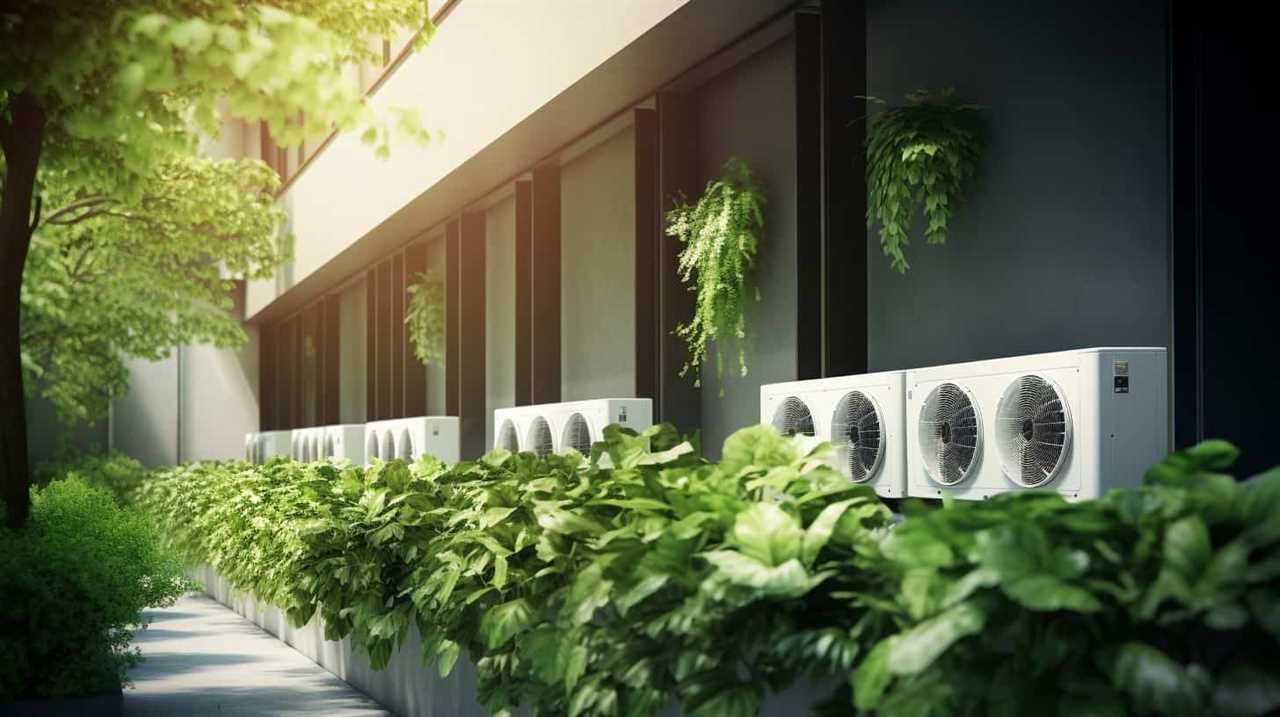
If the heat pump is undersized, it will struggle to meet the heating or cooling demands of the space, resulting in inadequate comfort levels. On the other hand, an oversized heat pump can lead to short cycling, where the unit turns on and off frequently, causing unnecessary wear and tear and reducing energy efficiency.
To ensure proper sizing, several considerations must be taken into account, such as the size of the space, insulation levels, and climate conditions. By carefully assessing these factors, we can determine the ideal heat pump size that will result in optimal performance and energy savings.
Regular Maintenance for Longevity
Regular maintenance is crucial for ensuring the longevity and optimal performance of your heat pump.
By adhering to a regular maintenance schedule, you can extend the lifespan of your heat pump, saving you money on costly repairs or replacements.
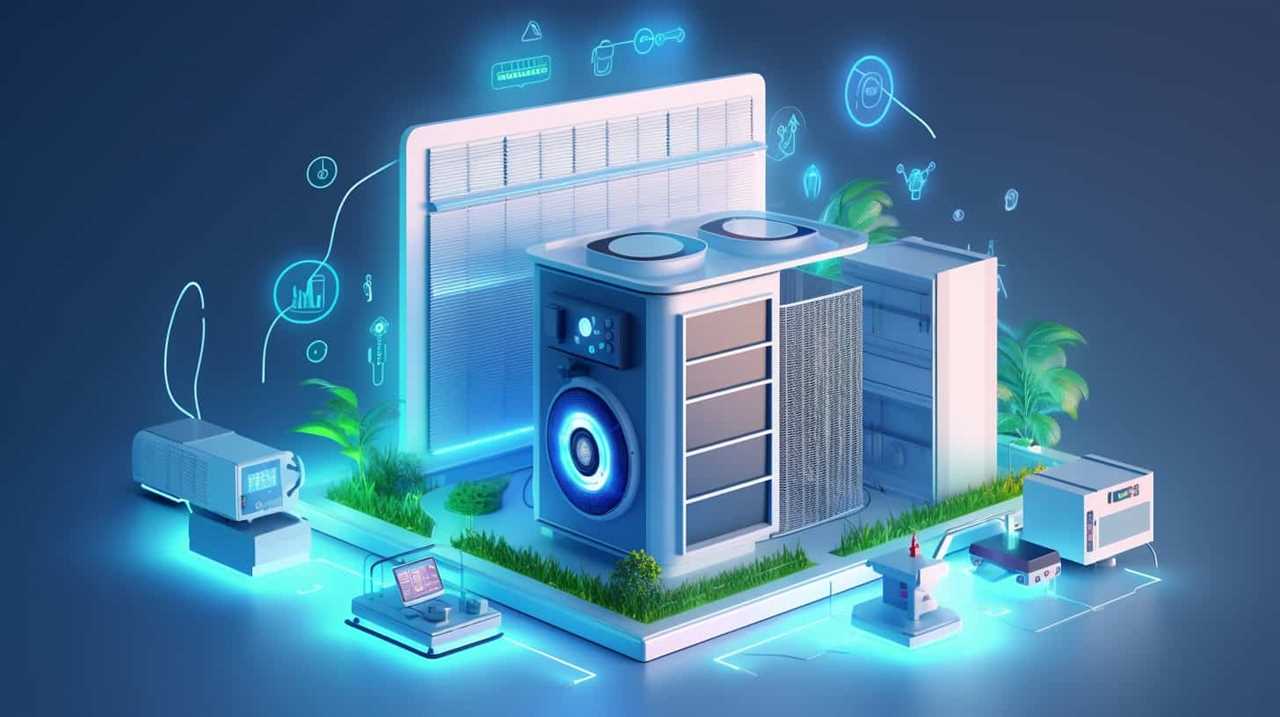
Additionally, proper maintenance enhances energy efficiency, allowing your heat pump to operate at its highest level of performance, resulting in lower energy bills and a reduced environmental impact.
Importance of Maintenance
To ensure the longevity of our heat pump, it’s essential to perform regular maintenance. Regular maintenance provides numerous benefits and helps keep our heat pump operating efficiently. Here are some key reasons why maintenance is crucial:
Improved Energy Efficiency: Regular maintenance ensures that our heat pump is clean and free from any obstructions, allowing it to operate at its maximum efficiency.
Prevent Costly Repairs: By performing regular maintenance, we can identify and address any minor issues before they turn into major problems, saving us from expensive repairs in the long run.
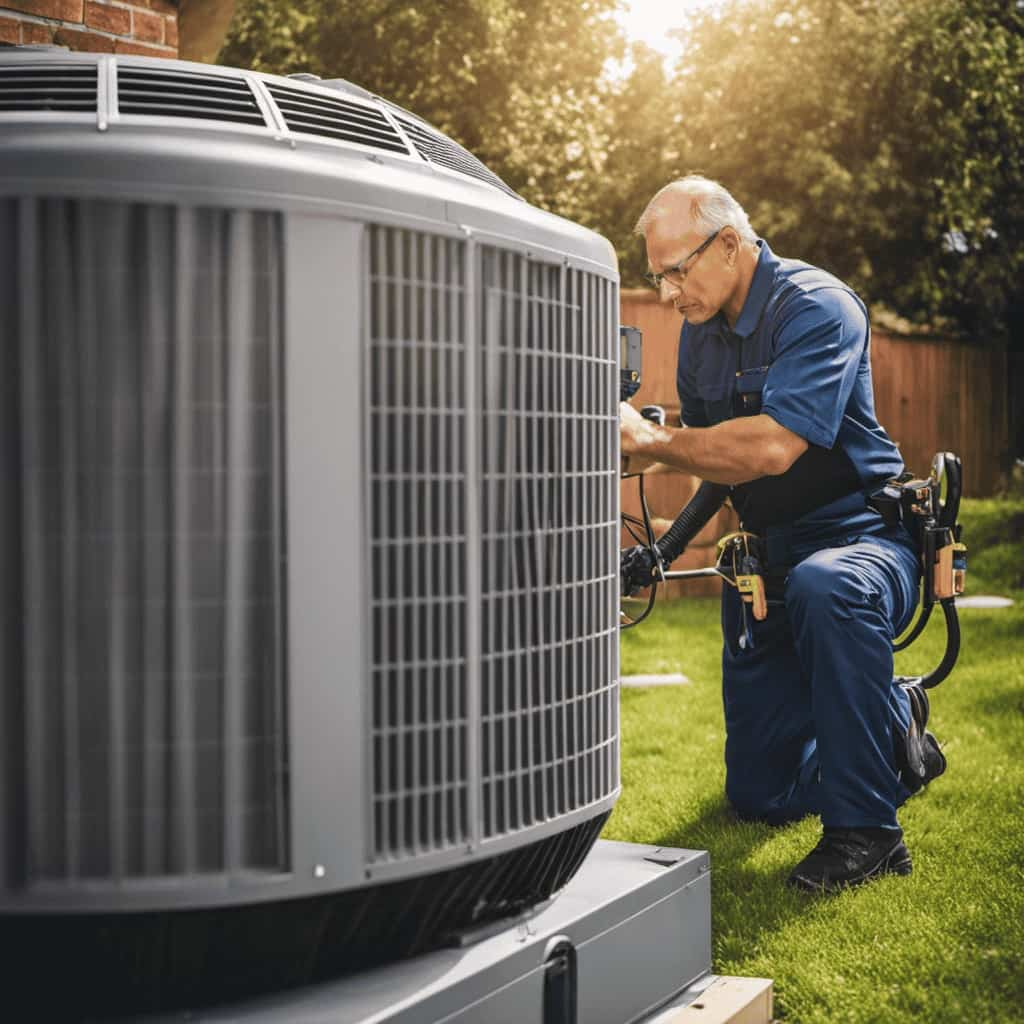
Extended Lifespan: Proper maintenance helps extend the lifespan of our heat pump, ensuring that it serves us well for many years.
Enhanced Indoor Air Quality: Regular maintenance includes cleaning or replacing filters, which helps improve the quality of the air we breathe.
By implementing a regular maintenance schedule, we can maximize the performance of our heat pump and avoid any unnecessary breakdowns.
Now, let’s explore how we can further extend the lifespan of our heat pump.
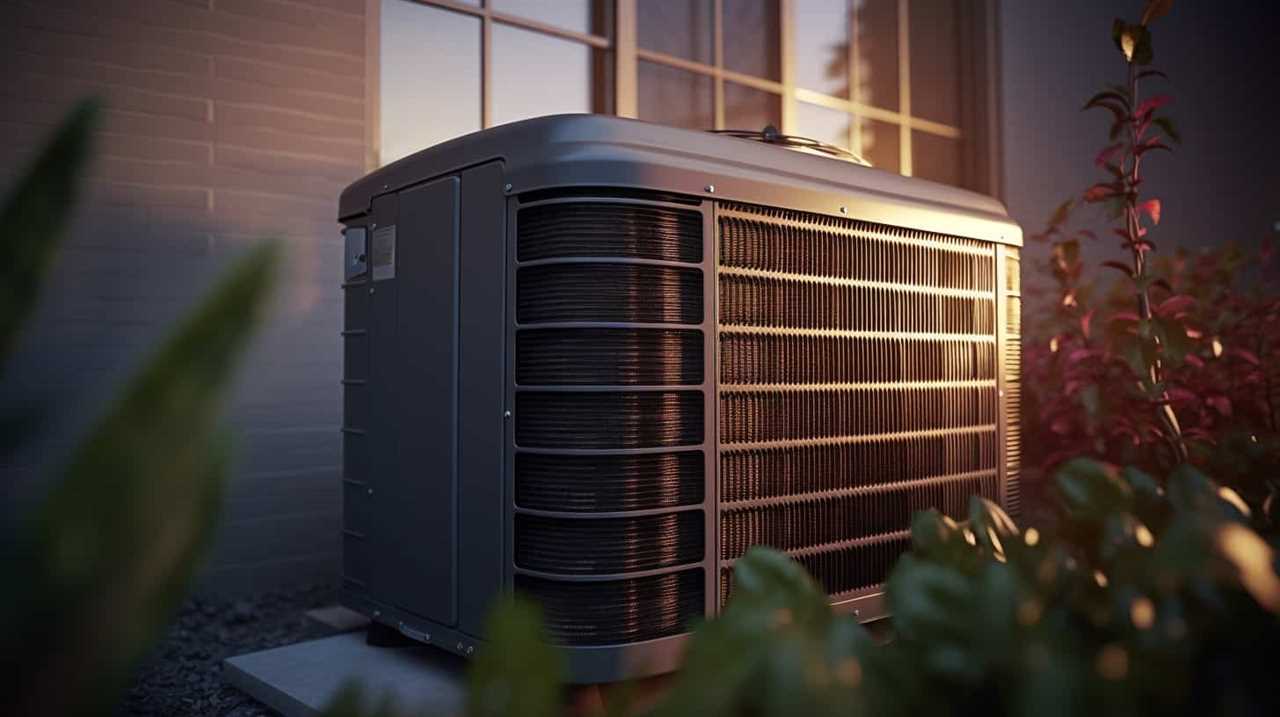
Extending Heat Pump Lifespan
By performing routine maintenance tasks, we can effectively extend the lifespan of our heat pump. Regular maintenance is crucial in ensuring that our heat pump operates at optimal efficiency and avoids common issues that can lead to premature failure.
One important task is to regularly clean or replace the air filters. Dirty filters restrict airflow and force the heat pump to work harder, reducing its lifespan.
Additionally, it’s important to check and clean the outdoor unit regularly to remove any debris or vegetation that may obstruct the airflow.
Another common issue is a refrigerant leak, which can cause the heat pump to work inefficiently and lead to compressor failure. It’s essential to have a professional inspect and repair any leaks to prevent further damage.

Enhancing Energy Efficiency
We can significantly enhance the energy efficiency of our heat pump by conducting regular maintenance tasks. Here are some energy saving tips to help reduce energy consumption and maximize the efficiency of your heat pump:
- Clean or change air filters regularly to ensure proper airflow and prevent dust and debris from accumulating.
- Keep the outdoor unit clear of any obstructions, such as leaves or debris, to maintain optimal airflow.
- Inspect and clean the evaporator and condenser coils to remove dirt and improve heat transfer.
- Schedule annual professional maintenance to check for any issues, such as refrigerant leaks or faulty components.
By following these maintenance tips, you can ensure that your heat pump operates at its peak efficiency, reducing energy consumption and saving you money on your utility bills.
Now, let’s explore another way to optimize your heat pump’s performance by utilizing programmable thermostats.
Utilizing Programmable Thermostats
When setting up a programmable thermostat, we should carefully consider the optimal temperature settings for different times of day.
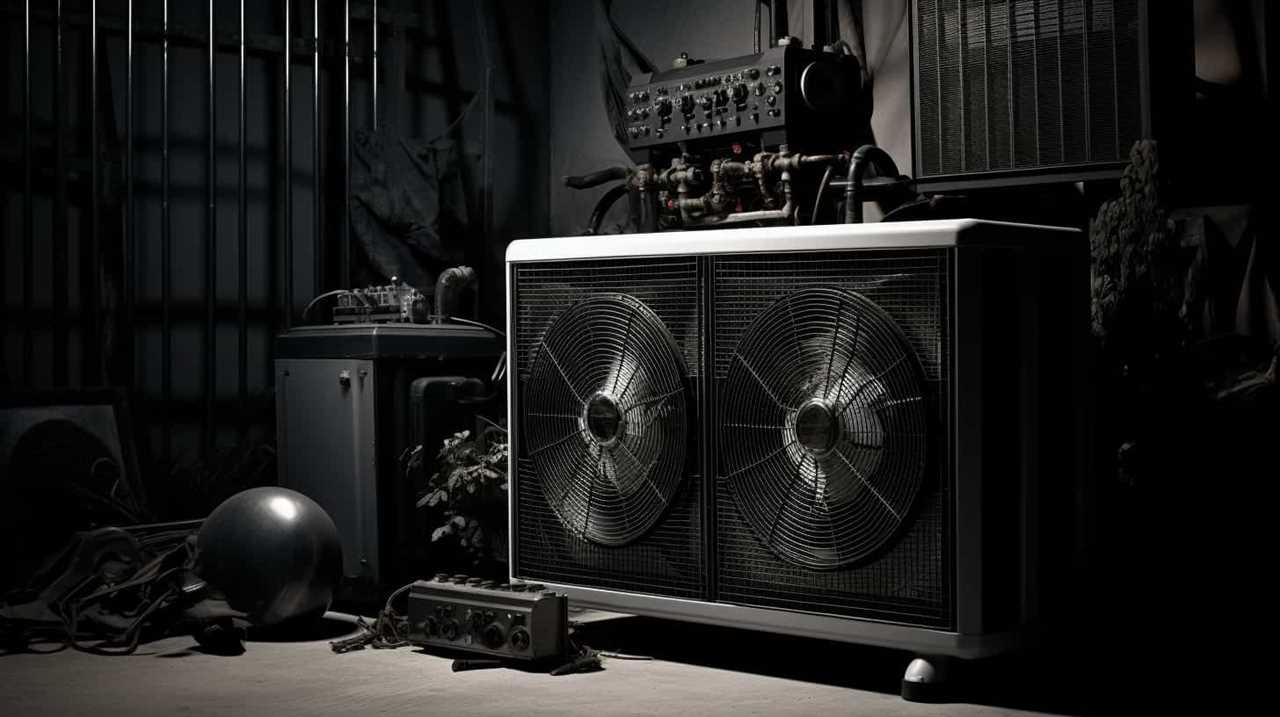
Smart thermostat benefits include the ability to schedule temperature adjustments throughout the day, maximizing both comfort and energy savings.
By programming the thermostat to lower the temperature during times when no one is home or at night when everyone is asleep, we can significantly reduce energy consumption.
Energy saving settings such as these not only help the environment but also contribute to lower utility bills.
Additionally, some programmable thermostats offer features like occupancy sensors and learning capabilities, further enhancing energy efficiency.

By utilizing these advanced technologies, we can ensure that our heating and cooling system operates at its highest efficiency levels.
Now, let’s move on to optimizing airflow and ventilation to further enhance our climate control efforts.
Optimizing Airflow and Ventilation
To ensure optimal heat pump efficiency, we frequently check and adjust airflow and ventilation in our home. Proper airflow optimization and ventilation techniques are essential for maintaining a comfortable and healthy indoor environment. Here are some key tips to consider:
Clean air filters regularly to ensure unrestricted airflow and prevent dust and debris buildup.
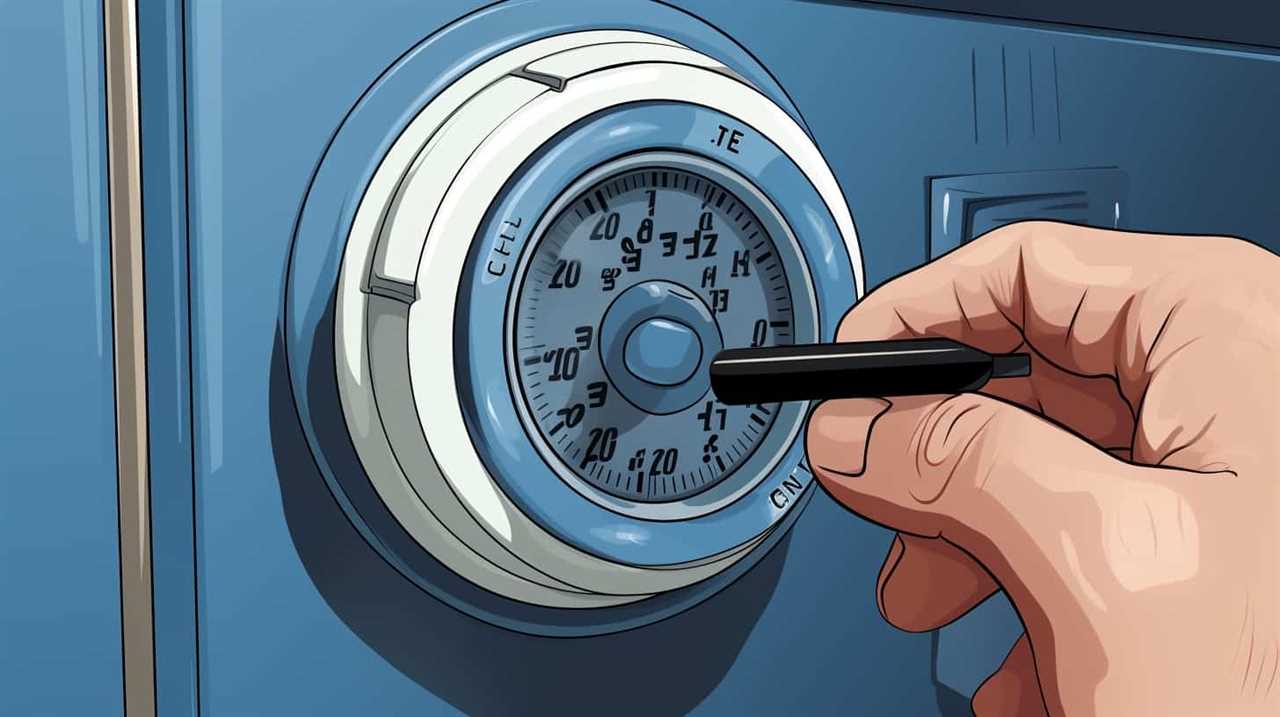
Maintain clear and unobstructed vents and registers to allow the free flow of air throughout the house.
Consider using ceiling fans or portable fans to improve air circulation and distribute conditioned air more effectively.
Ensure proper ventilation in areas prone to high humidity, such as bathrooms and kitchens, by using exhaust fans or opening windows.
Effective Insulation Techniques
With proper insulation in our home, we can significantly reduce heat loss and ensure that our heat pump operates efficiently. Effective insulation techniques play a crucial role in creating a comfortable indoor environment while minimizing energy consumption.

One energy-saving solution is to insulate the walls and ceilings with materials that have high R-values, such as fiberglass batts or foam insulation. Additionally, sealing air leaks around windows, doors, and electrical outlets can prevent warm air from escaping and cold air from entering the house.
Another technique is insulating the attic and crawl spaces to prevent heat loss through the roof and floors.
Smart Energy Management Strategies
Our team has found that implementing smart energy management strategies can greatly enhance the efficiency of our heat pump system. By utilizing smart home technology, we can optimize our energy consumption and reduce wastage. Here are some effective strategies to consider:
Programmable Thermostats: These devices allow us to set specific temperature schedules, ensuring that our heat pump operates efficiently and only when needed.
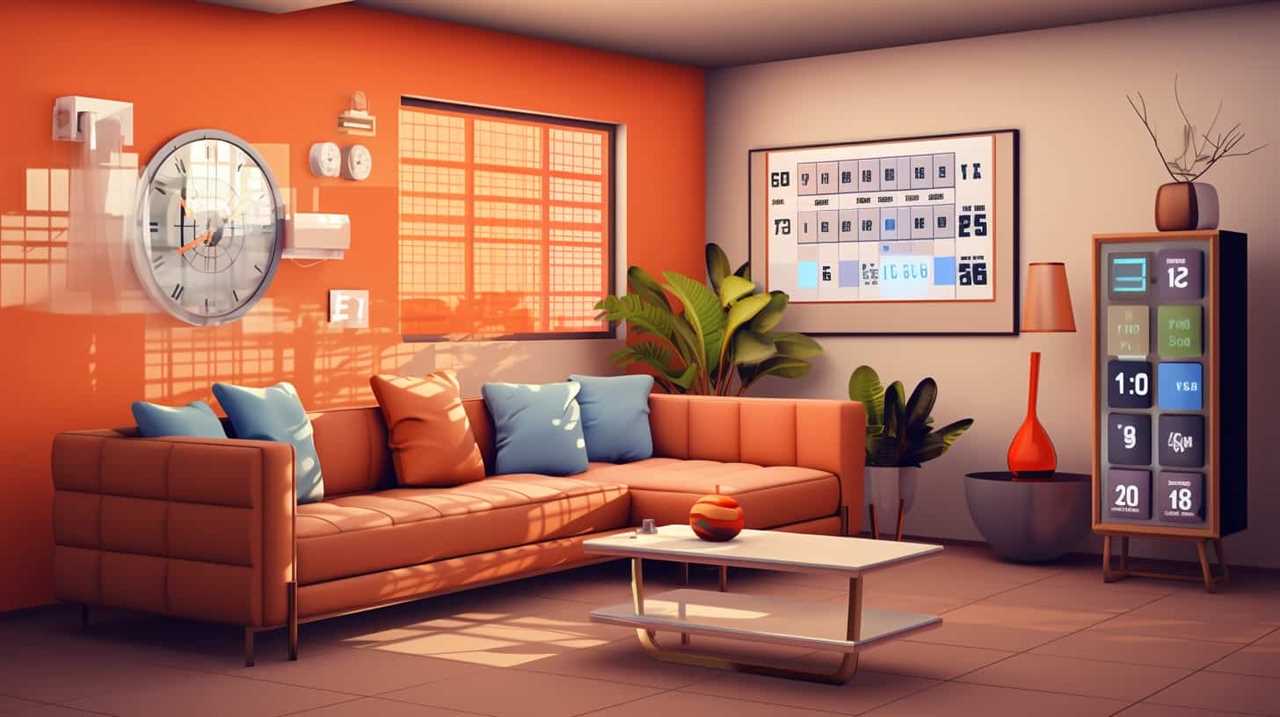
Energy Monitoring Systems: By tracking our energy usage in real-time, we can identify areas of high consumption and make adjustments to minimize waste.
Smart Power Strips: These power strips automatically cut off power to devices in standby mode, reducing phantom energy consumption.
Energy-Efficient Appliances: Upgrading to energy-efficient appliances can significantly reduce our overall energy usage.
Leveraging Heat Pump Rebates and Incentives
By taking advantage of available heat pump rebates and incentives, we can maximize our savings and make our climate control system more cost-effective. When it comes to heat pump installation, there are various rebates and incentives offered by government agencies, utility companies, and manufacturers. These incentives are designed to encourage energy efficiency and reduce the upfront costs of purchasing and installing a heat pump.

Some common incentives include cash rebates, tax credits, and low-interest financing options. It’s important to research and understand the available incentives in your area to ensure you receive the maximum benefits.
Additionally, implementing energy-saving techniques such as proper insulation, regular maintenance, and programmable thermostats can further improve the efficiency of your heat pump system and increase your chances of qualifying for rebates and incentives.
Taking advantage of these opportunities not only saves you money but also contributes to a more sustainable and energy-efficient future.
Exploring Geothermal Heat Pump Options
When exploring geothermal heat pump options, it’s crucial to consider the cost and potential savings associated with this technology.
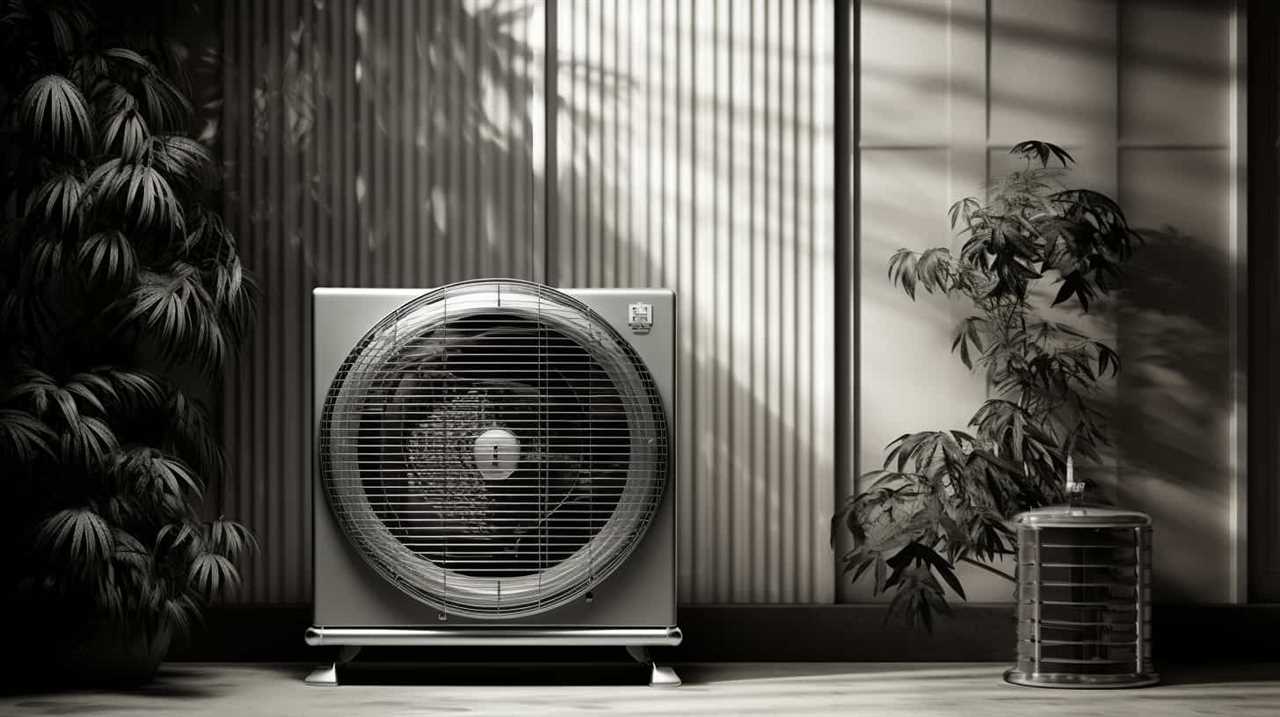
Geothermal heat pumps have a higher upfront cost compared to traditional HVAC systems, but they can provide significant long-term savings on energy bills.
Additionally, it’s important to take into account the installation considerations, such as the availability of suitable land or water sources for the heat exchange system and the expertise required for installation.
Cost and Savings
We can explore various geothermal heat pump options to maximize cost savings. Geothermal energy is a renewable source that can significantly reduce energy consumption and save money in the long run. Here are some options to consider:
Closed Loop System: This system circulates a mixture of water and antifreeze through a closed loop of pipes buried underground. It efficiently transfers heat from the earth to your home, minimizing energy usage.
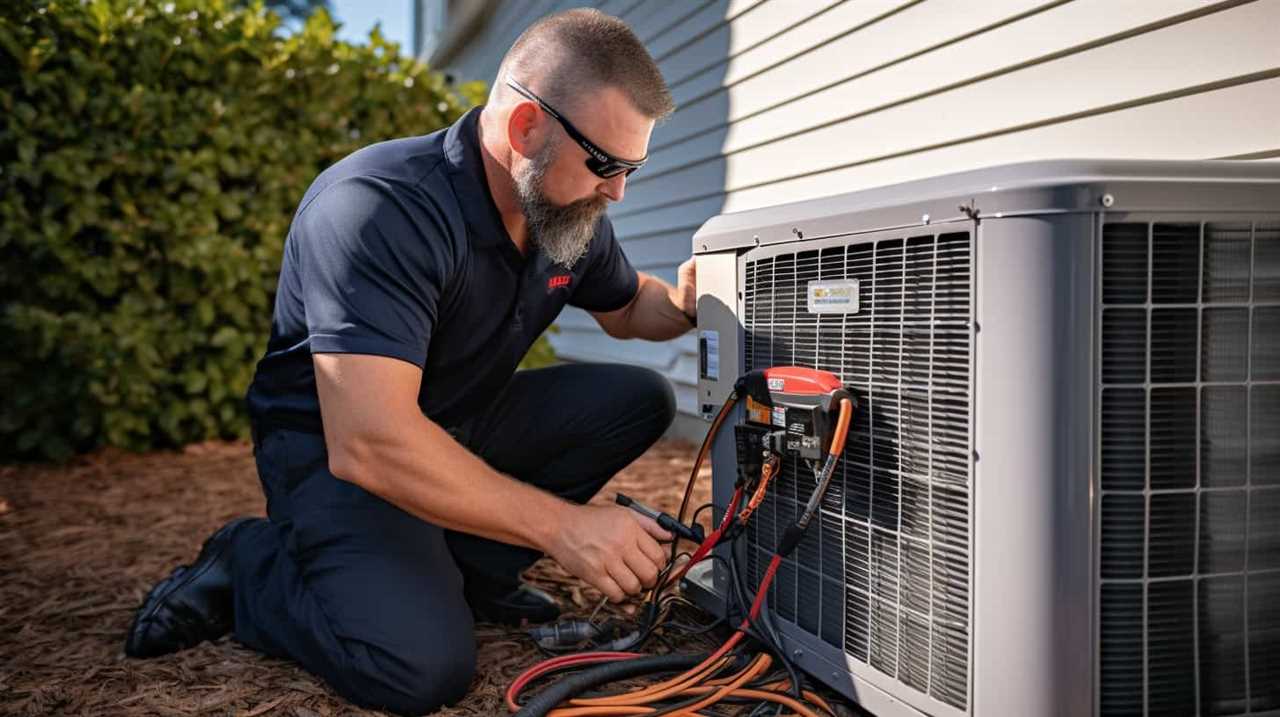
Open Loop System: This system uses groundwater as a heat source or heat sink. It requires a sufficient supply of clean water and may be more cost-effective in areas with abundant water resources.
Direct Exchange System: This system uses refrigerant to directly extract heat from the ground. It eliminates the need for water circulation, making it a more efficient and environmentally friendly option.
Hybrid System: This system combines a geothermal heat pump with another heating or cooling system, such as a traditional furnace or air conditioner. It provides flexibility and can further optimize cost savings.
Installation Considerations
For optimal geothermal heat pump installation, we need to carefully consider the location and ground conditions. When installing a geothermal heat pump, it’s crucial to choose a suitable location that maximizes energy efficiency and minimizes installation costs.
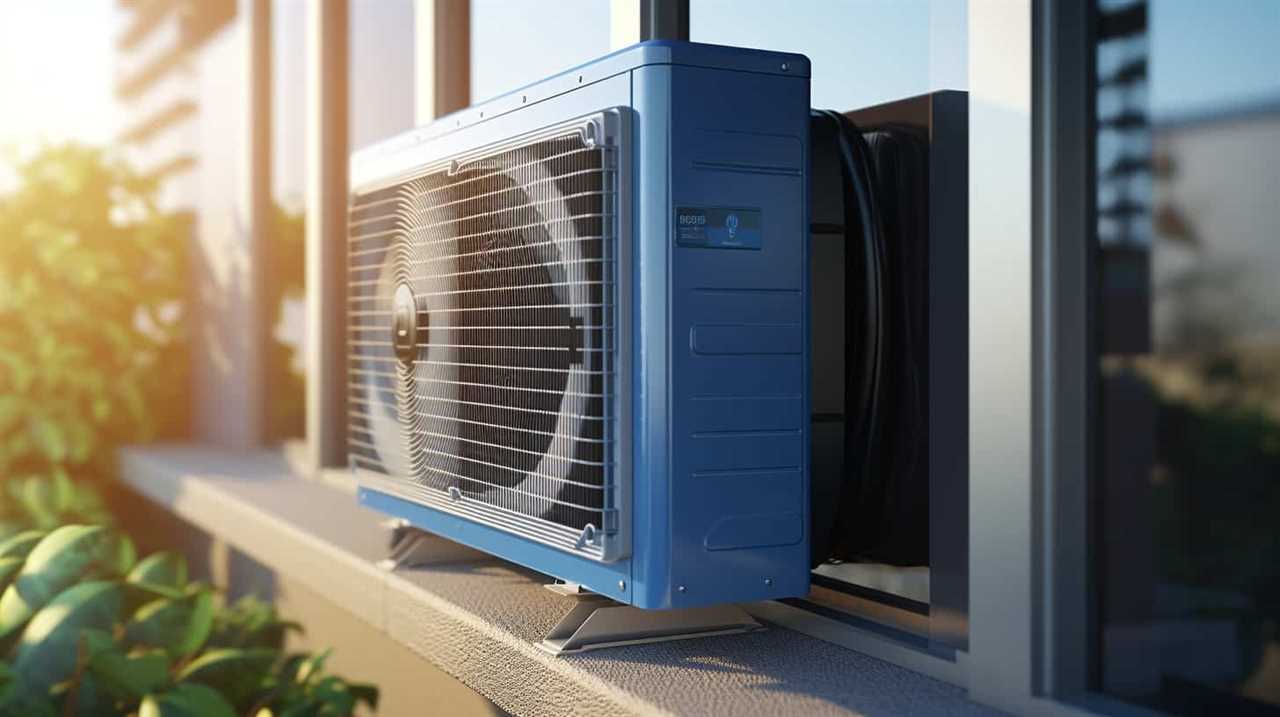
The ground conditions play a significant role in determining the type of geothermal heat pump system that will work best. Conducting a thorough geological survey is essential to assess the soil composition, water table depth, and available land area. This information will help determine the most appropriate geothermal heat pump system, whether it’s a closed-loop or open-loop system.
Additionally, proper installation practices, such as correct sizing and placement of the system components, are crucial to ensure optimal performance and energy savings. Following these installation best practices and energy saving tips will result in a more efficient geothermal heat pump system that effectively heats and cools your space while reducing energy consumption.
Troubleshooting Common Heat Pump Efficiency Issues
To troubleshoot common heat pump efficiency issues, we can start by checking the air filters and ensuring they’re clean and free from debris. This simple step can greatly improve the performance of the heat pump. However, if the issue persists, there may be other underlying problems that need troubleshooting.
Here are some common heat pump efficiency issues and their troubleshooting methods:

Troubleshooting electrical issues:
Check the circuit breaker to ensure it isn’t tripped.
Inspect the wiring connections for any loose or damaged wires.
Test the thermostat to ensure it’s functioning properly.
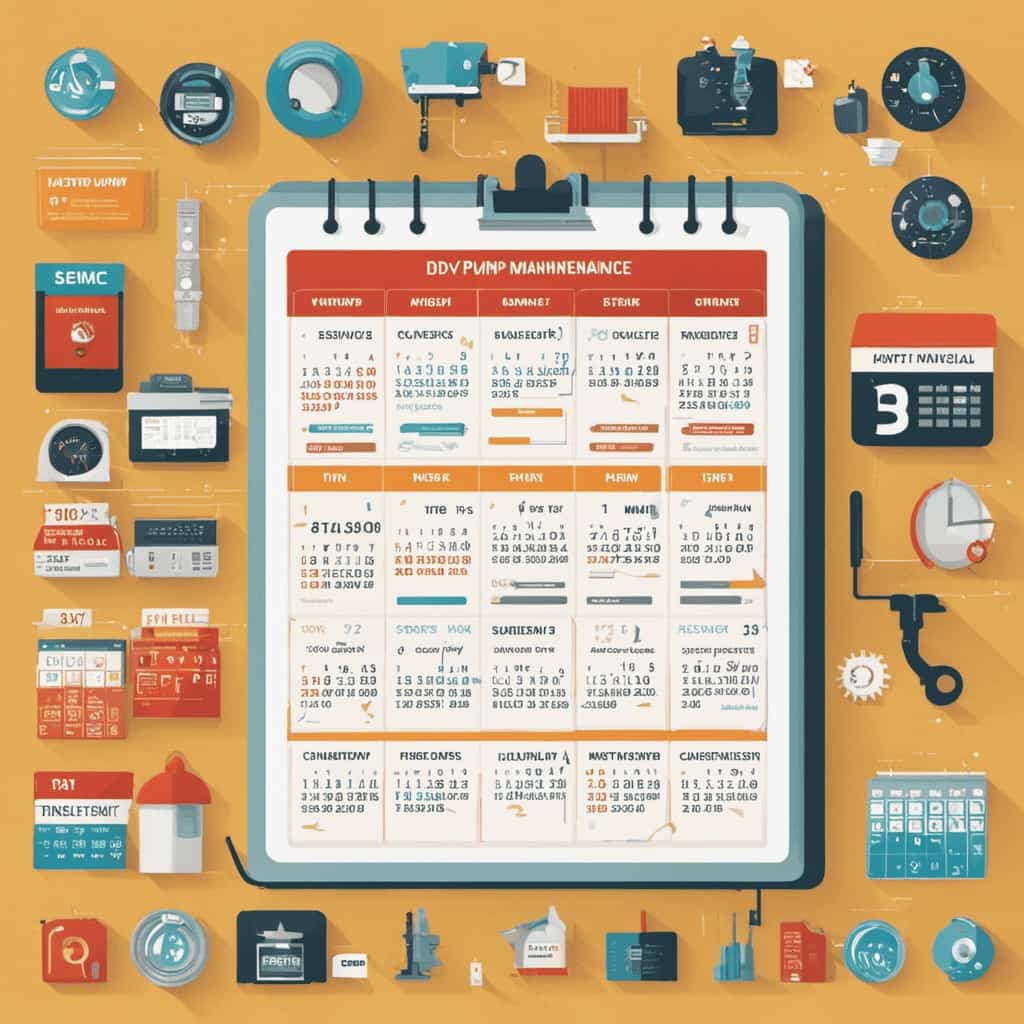
Troubleshooting refrigerant leaks:
Look for any signs of oil or refrigerant stains around the heat pump.
Use a refrigerant leak detector to locate the source of the leak.
Repair any leaks found and recharge the system with the correct amount of refrigerant.

Frequently Asked Questions
Can a Heat Pump Be Used as the Sole Source of Heating and Cooling in a Home?
Yes, a heat pump can be used as the sole source of heating and cooling in a home. However, it is important to consider the pros and cons of this approach in terms of heat pump efficiency and overall climate control.
What Factors Should Be Considered When Choosing the Right Size Heat Pump for a Home?
When choosing the right size heat pump for your home, several factors should be considered. These include heat pump efficiency, heat pump size, heat pump capacity, and proper heat pump sizing.
How Often Should a Heat Pump Be Serviced and What Maintenance Tasks Should Be Performed?
We recommend regular heat pump maintenance to maximize efficiency and ensure optimal performance. The frequency of servicing depends on factors like usage and environment. Tasks may include cleaning filters, checking refrigerant levels, and inspecting electrical components.
Are There Any Specific Programming Recommendations for a Programmable Thermostat When Using a Heat Pump?
When it comes to optimizing energy usage with a heat pump, specific thermostat settings are key. By programming your thermostat to match your desired temperature and schedule, you can maximize efficiency and enjoy comfortable climate control.

What Are Some Common Signs of Poor Airflow or Ventilation in a Home With a Heat Pump?
Poor airflow or ventilation in homes with heat pumps can be caused by blocked vents, dirty filters, or leaky ducts. To improve airflow, regularly clean filters, ensure vents are clear, and seal any duct leaks.
What Are the Essential Heat Pump Maintenance Tips to Maximize Efficiency?
Regular heat pump maintenance tips are crucial in ensuring maximum efficiency and longevity. First, make sure to clean or replace the air filters every few months. Secondly, inspect and clean the outdoor unit to remove debris and obstructions. Additionally, check and adjust the thermostat settings as needed. Lastly, schedule professional maintenance annually to keep your heat pump in its best shape.
Conclusion
In conclusion, by understanding heat pump efficiency ratings and properly sizing your unit, you can maximize its performance.
Regular maintenance, programmable thermostats, and optimizing airflow are essential for longevity and energy efficiency.
Smart energy management strategies and leveraging rebates can further enhance efficiency.

For those looking for alternative options, geothermal heat pumps offer a sustainable solution.
By troubleshooting common issues, you can ensure your heat pump operates at its peak efficiency, providing optimal climate control for your space.



